Most Christians will tell you that sharing the gospel is a critical element of their faith. Jesus left His disciples with clear instructions to evangelize in the Great Commission:
Then Jesus came to them and said, “All authority in heaven and on earth has been given to me. Therefore go and make disciples of all nations, baptizing them in the name of the Father and of the Son and of the Holy Spirit, and teaching them to obey everything I have commanded you. And surely I am with you always, to the very end of the age” (Matthew 28:18-20).
But when it comes to doing the Great Commission, several questions arise. What’s the best way to facilitate this work? How should the church prioritize it? And how should individual Christians get involved?
Our evangelism survey
To get a better handle on the general consensus around the topic of evangelism, Jesus Film Project recently did a survey on the topic of evangelism with more than 1,500 participants whom identified as Christians.
What we learned about the preferences, priorities, and attitudes surrounding evangelism was extremely interesting, especially in regard to generational outlook and opinions.
Here’s how respondents were divided by age.
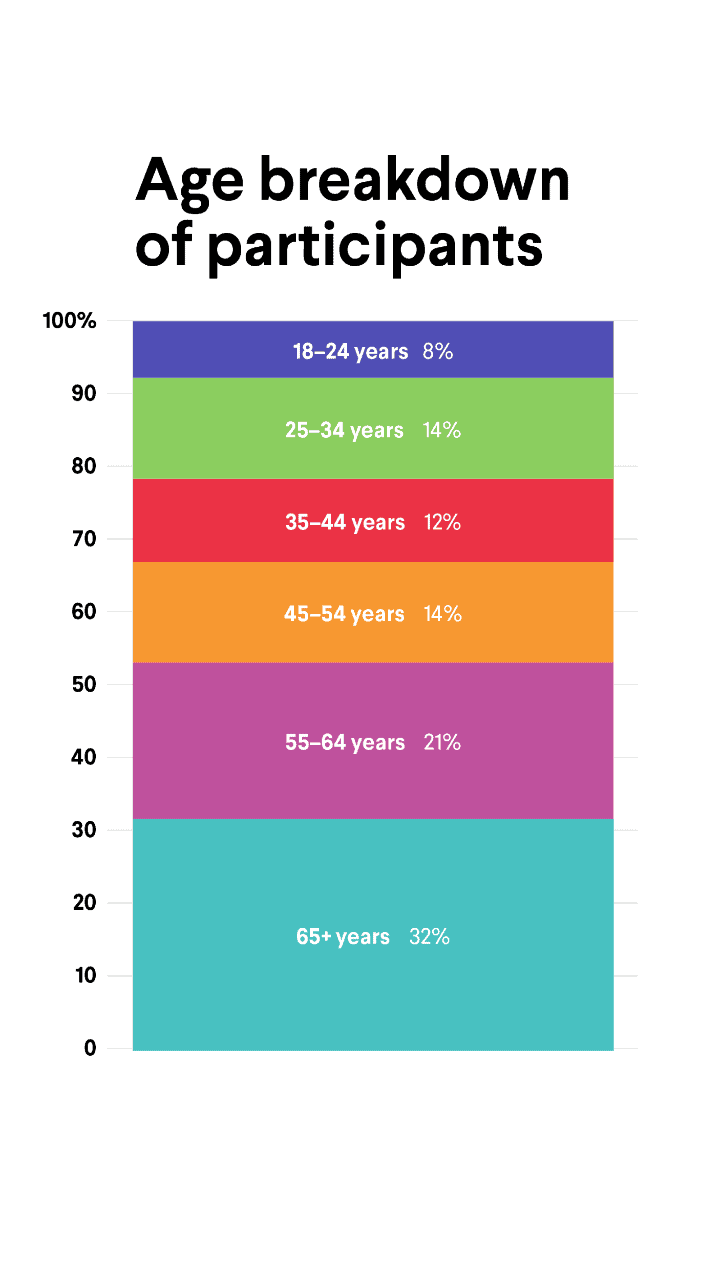
Almost a third of the responders were ages 65 and up. Next came the 55-64-year-olds who made up a little more than a fifth of the audience. Both the responders aged 45-54 and 25-34 came in at nearly 14 percent. The 35-44-year-old crowd made up 11 percent and the 18-24-year-old responders came in closer to 8 percent.
To make our findings easier to discuss, we’re going to break these age groups into rough generational groups:
- 18-24: Gen Z
- 25-34: Millennials
- 35-44: Young X
- 45-54: Gen X
- 55-64: Boomers
- 65+: Elders
While these aren’t the exact breakdowns for these generations, it’s close. Generation X typically falls between 38-53-year-olds, Boomers are 54-72-year-olds, and the Silent Generation is between 73-90. But to make this information easier to digest, we’ll use these generational groupings.
Let’s dig into what we learned.
Is sharing your faith important to you?
One of the first questions we asked was, “How important is it that you share your faith with others?” This question had a range of 1-7, with one being “not at all important” and seven being “very important.”
More than 92 percent of all respondents-regardless of age-believed that it was of moderate to high importance for them to share their faith. Across the board, the largest percentage of responders placed sharing their faith as “very important.”
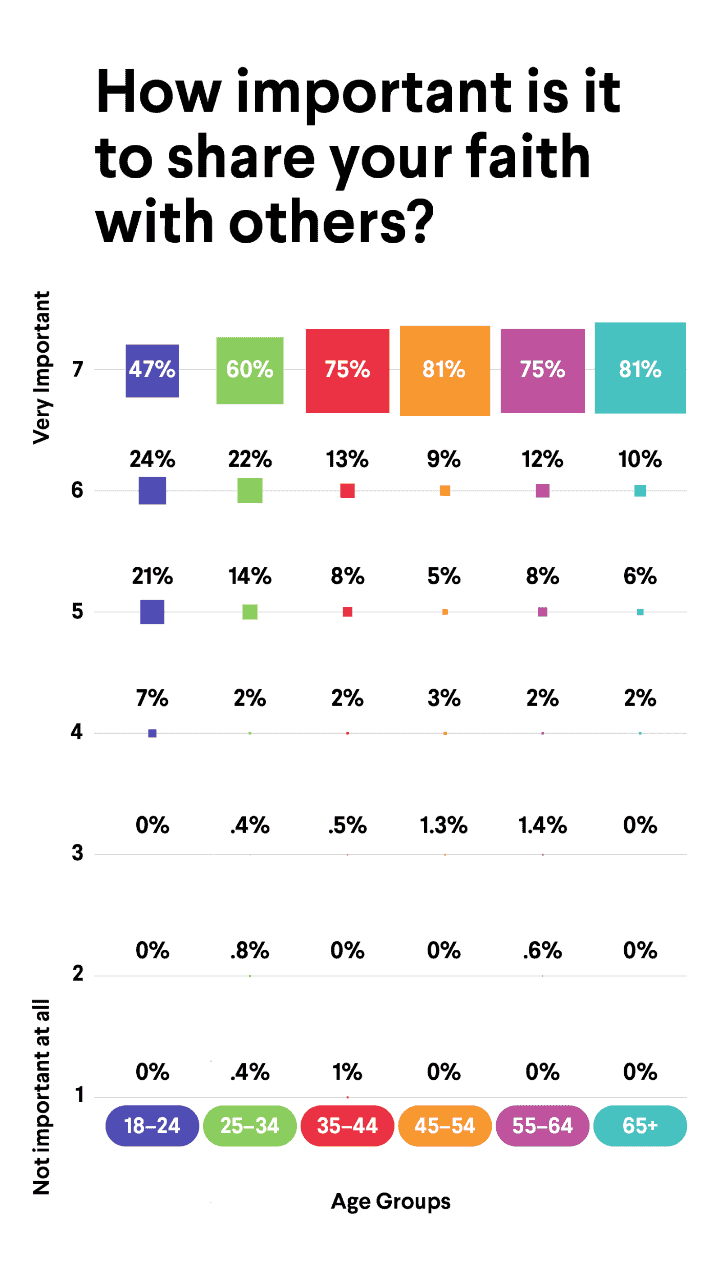
At least 50 percent of every demographic-except Gen Z-said that sharing their faith was very important. Both Millennials and Gen Z were least likely to assign the highest importance on sharing their faith. You can see this more clearly when we break down the percentage of each generation that assigned the highest priority to sharing their faith.
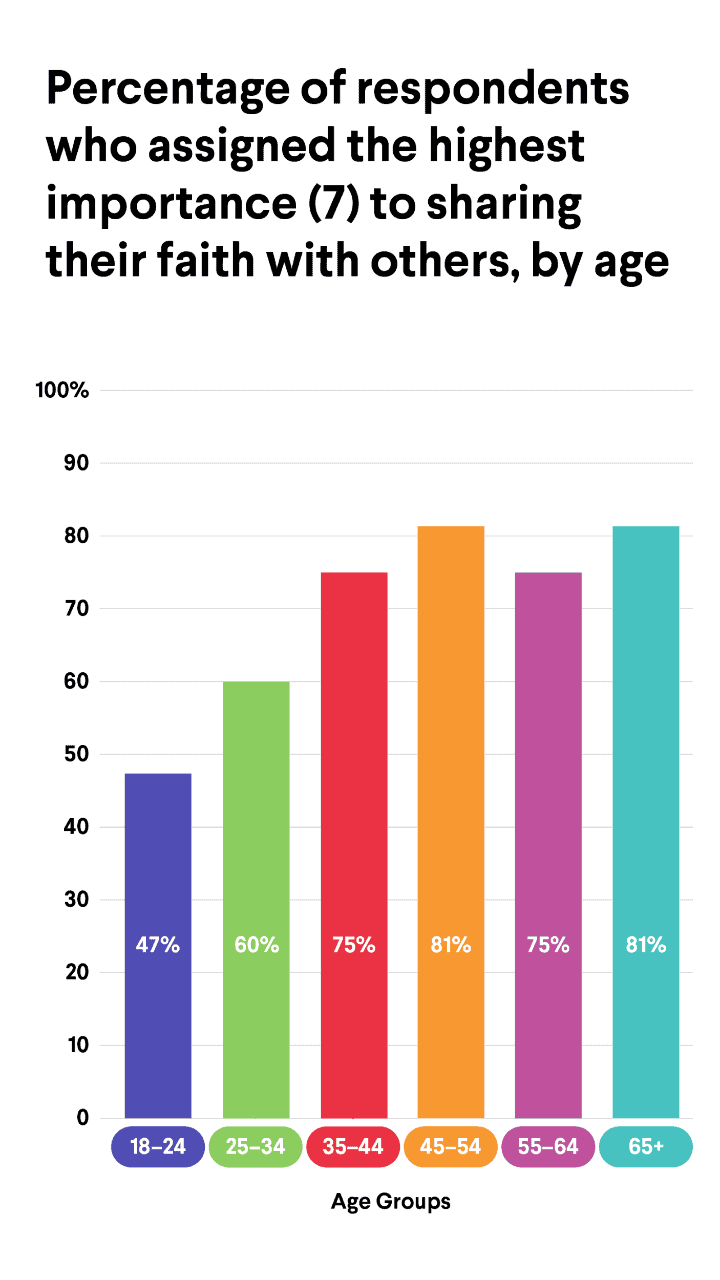
There are many possible reasons why Millennials and Gen Z responded this way. In a recent Barna study, it was found that Millennials struggled with issues related to evangelism. Almost half of Millennials believed that it was somewhat wrong to share personal beliefs with others in the hope that the listener would one day convert to that new way of thinking.
But as Barna explains, “Sharing the gospel today is made harder than at any time in recent memory by an overall cultural resistance to conversations that highlight people’s differences. Society today also casts a negative light on proselytization that many older Christians do not fully appreciate.”
In order for the church to maintain a focus on sharing the gospel, it will need to work harder at reinforcing the value and seriousness of proselytizing in the midst of a culture that’s become more and more resistant to the practice.
Who are we talking to about faith?
When asked to rank how often they had spiritual conversations with others who shared their views, the majority of every age group said that they talked about spiritual topics “all the time” with people who shared their views.
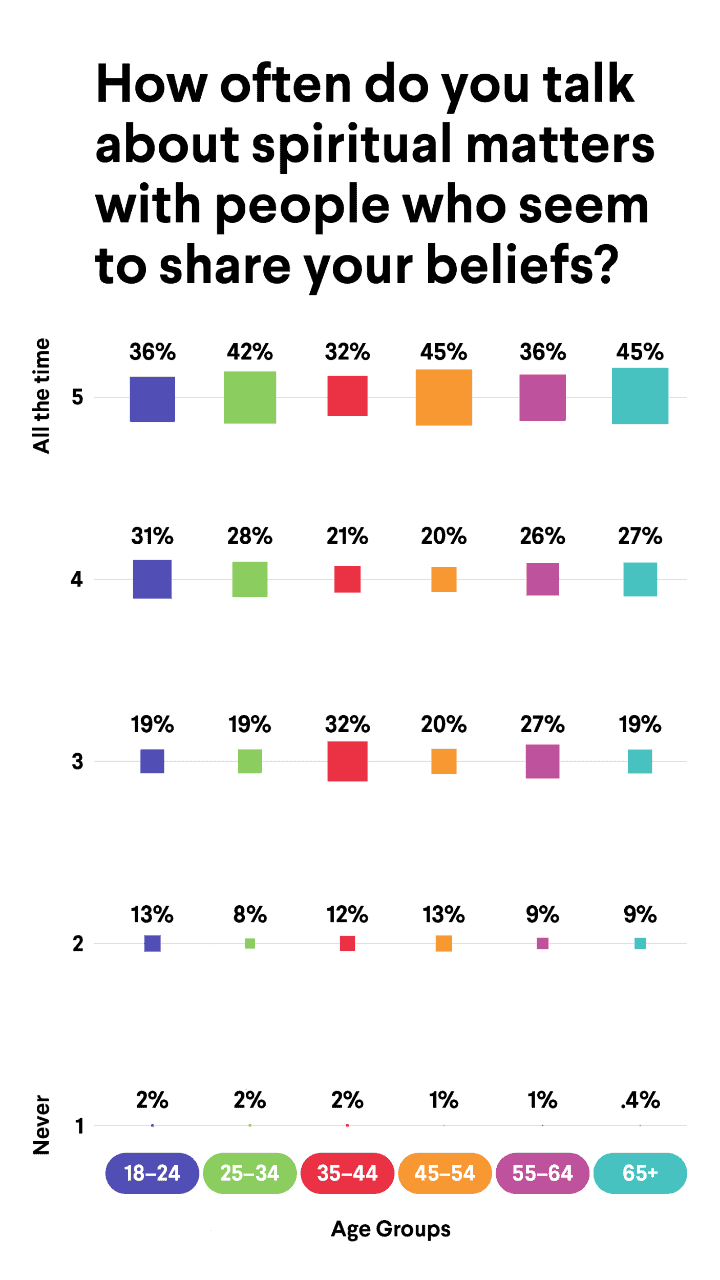
It’s pretty easy to talk about shared interests with others, but what about sharing your faith with people who disagree with you? On the same range between 1 (never) and 5 (all the time), respondents across the board were not as enthusiastic about talking with people who voiced beliefs they didn’t agree with.
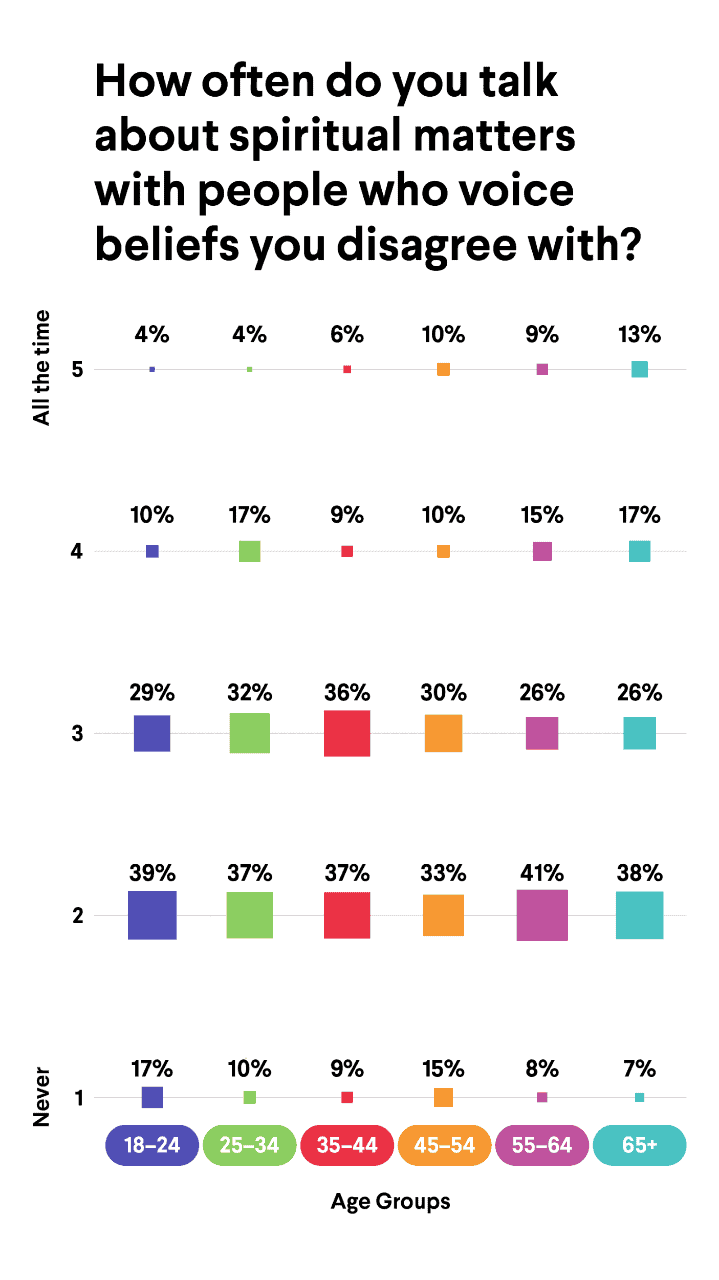
When it came to talking about spiritual matters with people who disagreed with their perspectives, every age group admitted that they don’t do it very often. Older generations had a slight a tendency to do it more often. But by and large, everyone tends to avoid engaging in spiritual discussions with people who disagree with them-even those respondents who feel that it’s imperative that they share the gospel with others.
It’s significant to note that even though younger generations were less likely to prioritize evangelism, the likelihood of talking about their faith with resistant listeners was not that dissimilar from older respondents who placed a premium on evangelism.
How do people share their faith?
We asked our survey takers to choose all the methods they use when sharing their faith with others. They were encouraged to check all that apply from the following list:
- One-on-one in-person conversation
- In-person, group conversation
- Public Speaking
- Private digital conversations (text, Messenger, WhatsApp, etc.)
- Public digital conversations (blogs, Facebook, Twitter, Instagram, etc.)
- I don’t share my faith with others
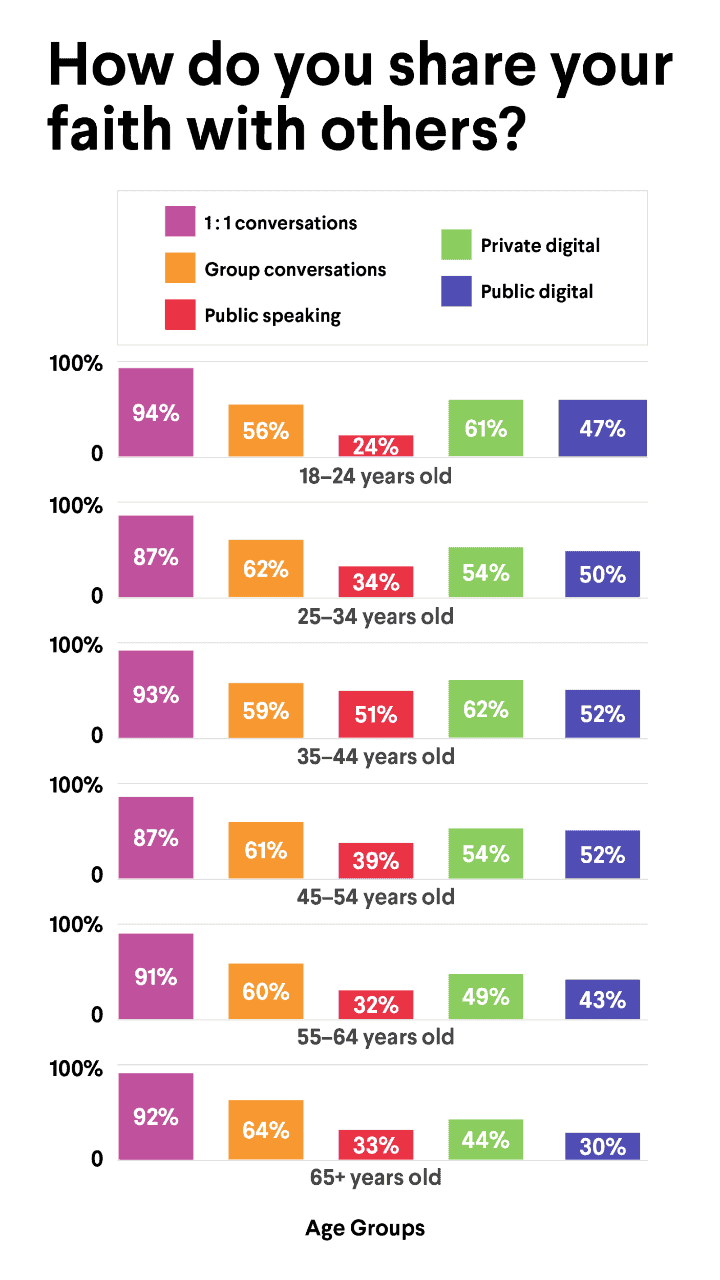
As you can see, one-on-one conversations were far and away the preferred method of sharing faith among every generation. But roughly half of all respondents under the age of 55 also used group conversations and digital channels to share their faith publicly.
It’s also fascinating to note that both Boomers and Elders had remarkably strong showings when it came to sharing their faith digitally. More than a third of Boomers had public digital platforms that they used for sharing the gospel, and nearly half of them used digital tools to share the gospel privately. More than 1 out of every 4 Elders used digital tools to share the gospel publically-and more than a third reported doing so privately.
What ministries are most important?
While every generation we surveyed communicated that sharing the gospel was essential, we were curious what people thought was the best way to get the job done. So we asked them:
Which of the following is most important to you?
- Planting new churches in unchurched areas
- Direct evangelism
- Translating the gospel into languages that have never heard it
- Equipping people to share the gospel themselves
- Providing humanitarian aid (food, medicine, shelter, clothing, etc.) to those in need
Here’s how it broke down:
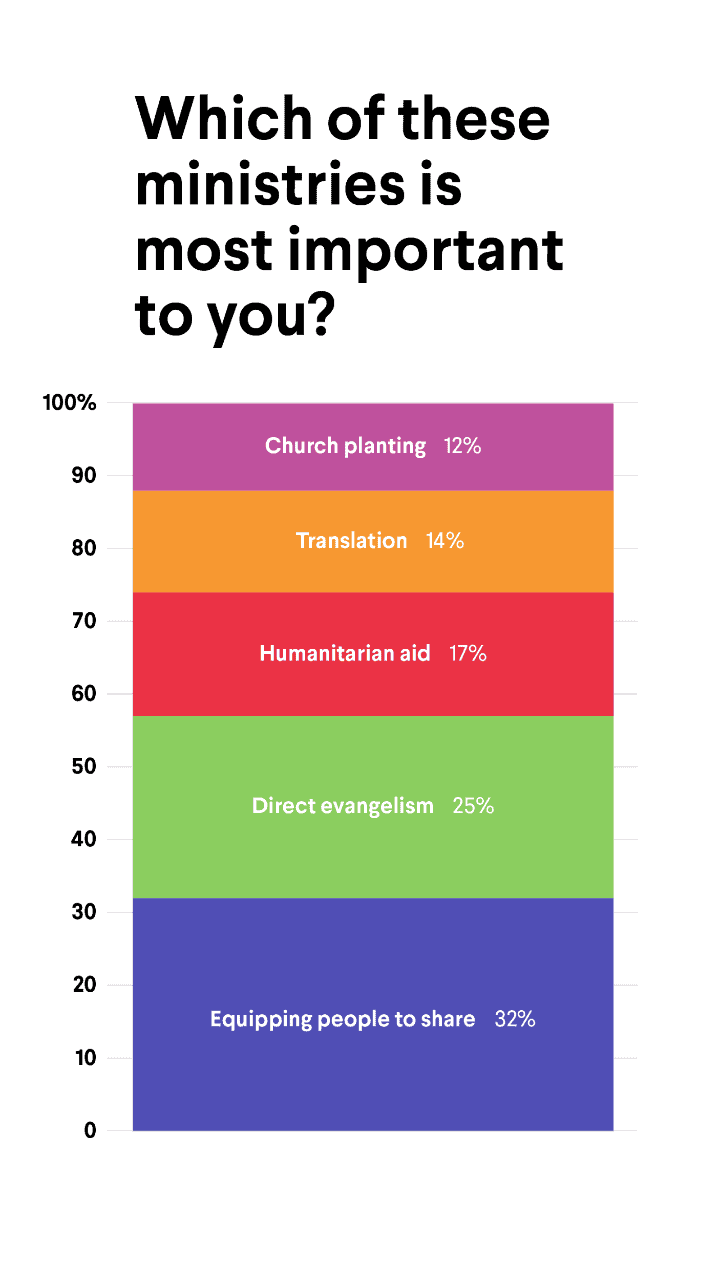
Nearly one out of every three respondents suggested that equipping people to share the gospel was their top priority. The next ministry with the most votes was direct evangelism-almost one-quarter of the people surveyed said that sharing the gospel directly was vital. Meeting physical needs came in third.
Here’s a picture of how these segments broke down by generation.

It’s interesting to note that among Gen Z and Millennial respondents, equipping people to share the gospel was head and shoulders above every other concern. What makes this so intriguing is that these two generations downplayed the importance of evangelism the most. One has to wonder if they’d prioritize evangelism more if they felt better prepared to do it.
With every demographic besides Gen Z and Millennials, direct evangelism was a very high second. In fact, when you isolate the top two choices of each demographic, you see how direct evangelism becomes increasingly important in older age groups. For Elders, direct evangelism is equally as vital as equipping others to share the good news. It makes complete sense when you consider that those over 65 lived through an era where large, open-air crusades and evangelical-focused ministries were so fruitful and prolific.
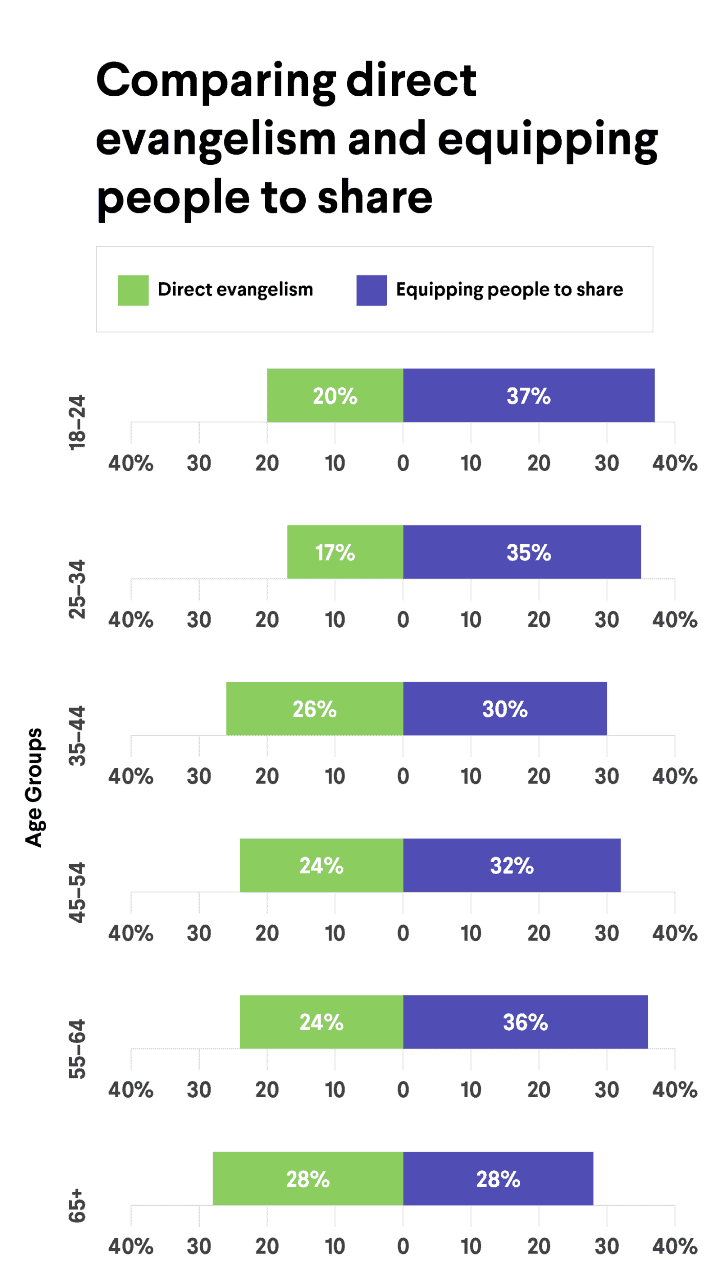
Church planting and translation work
Another interesting takeaway here is that church planting is most critical among younger generations and becomes less important as respondents get older. Ultimately, less than 10 percent of Elders considered church planting to be a priority.
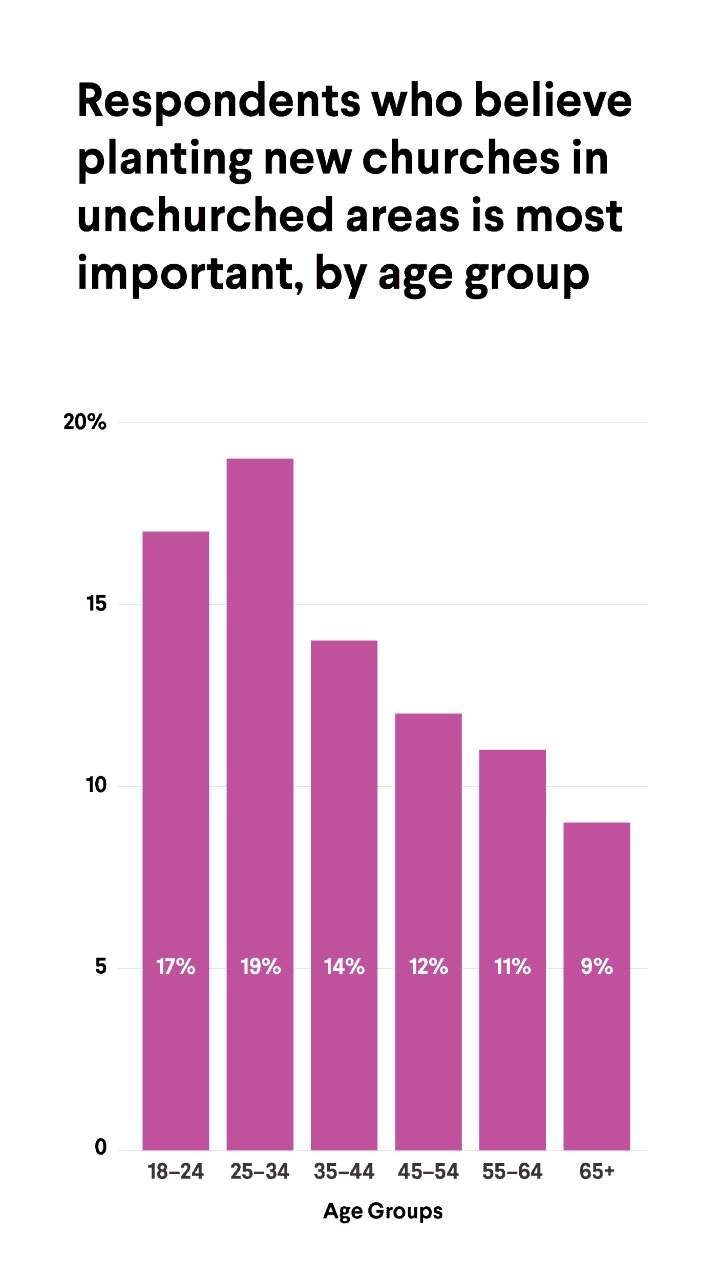
But when it comes to translating the gospel, this trajectory is almost completely reversed. Older respondents emphasized the ministry of translation work, while younger respondents didn’t see translation as the essential focus for evangelism.
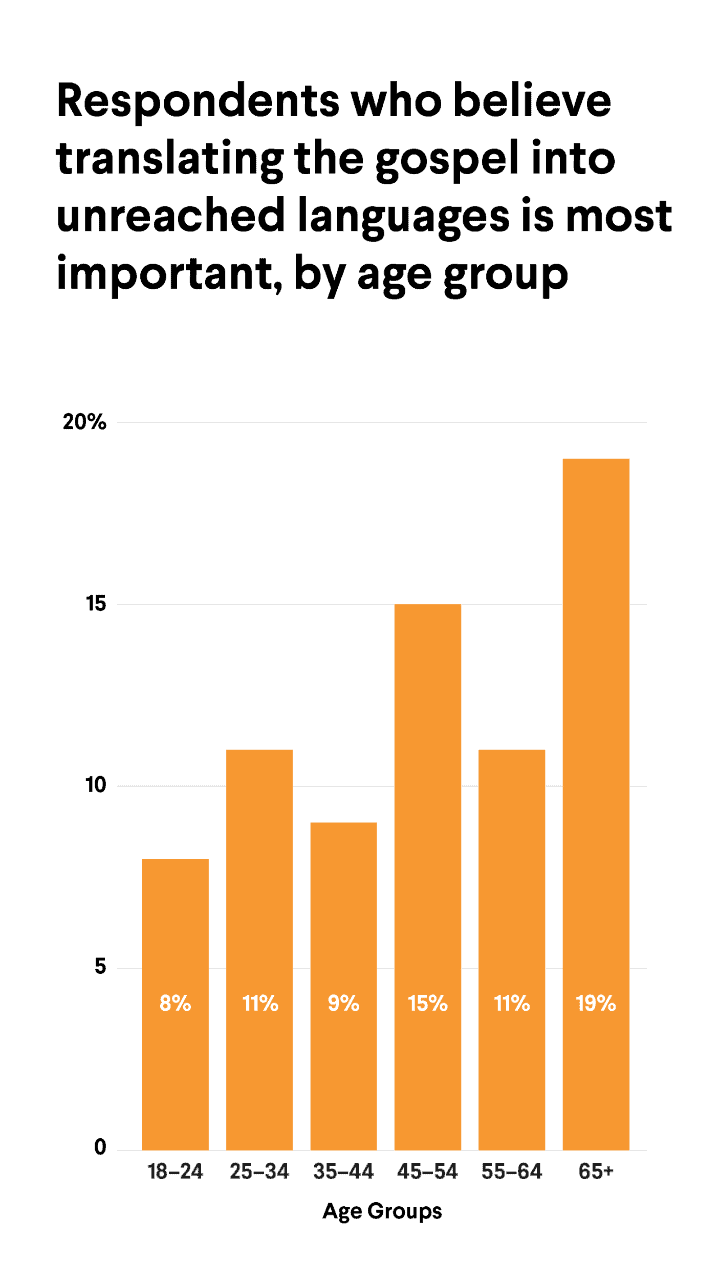
It makes sense that generations who grew up as digital natives might not understand why translation is critical work when it comes to evangelism. It’s so easy to hit a button in a browser and instantly translate text into multiple languages. Some headphones even translate languages for you in real time. It can be difficult for some to grasp that there are still people groups without access to such tech who don’t have the Bible in their own tongue or even have a written language.
Translation is foundational to the work of multicultural evangelism. But because it’s a behind-the-scenes job, it’s easy to miss its significance.
Digging into the topic of evangelism
While there are some differences in how it’s prioritized, every generation of Christians said they consider sharing the gospel with others to be an important part of their faith. Over the next couple of months, we’ll be digging even deeper into this survey.
Stay tuned into the Jesus Film Project blog as we unpack more of this information and discuss the implications. Leave us a comment and share your experiences with sharing the gospel.
